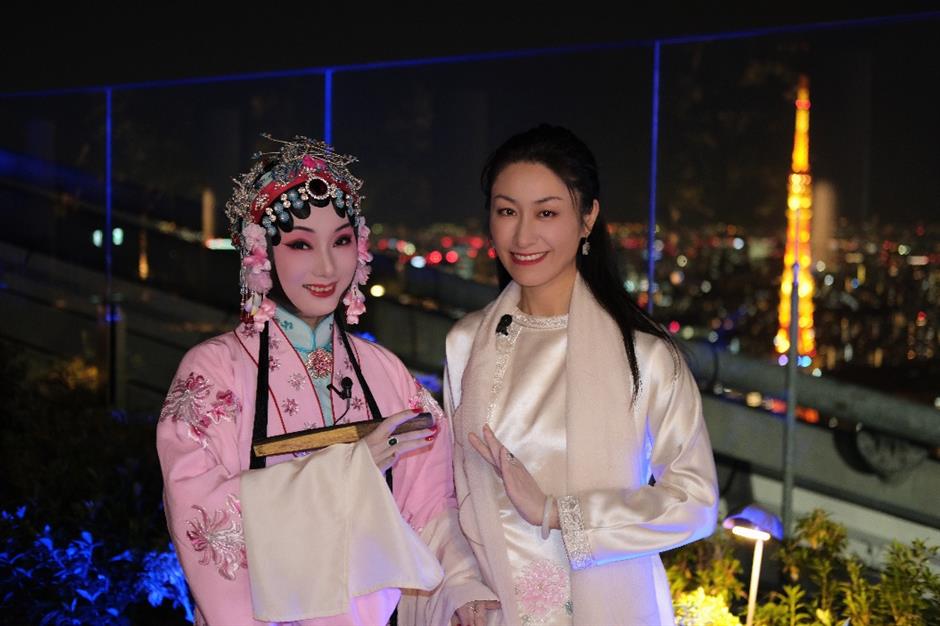Ancient Kunqu Opera spreads the word in Japan

Kunqu Opera artist Zhao Jinyu and her student Pan Xiaojing are devoted to introducing the age-old Chinese theater art to the world.
Kunqu Opera's Peng vocal school, founded by Zhang Xunpeng, is expected to cultivate more foreign apprentices in Japan after the Shanghai Kunqu Pengpai Art Research Center opened its Tokyo branch on May 18.
May 18, 2001, was when Kunqu Opera was proclaimed by UNESCO as one of the first batch of the Masterpieces of Oral and Intangible Heritage of Humanity.
The Tokyo branch will spread 86-year-old Zhang's art overseas, building bridges of friendship via the 600-year-old opera genre.
Known as the "ancestor of a hundred operas" in China, Kunqu Opera's artistic characteristics and expression forms are deeply rooted in traditional Chinese culture and aesthetics. The Tokyo branch represents a new path for the overseas dissemination of the art.
Since 2016, Kunqu Opera artist Zhao Jingyu, a student of Zhang's, has performed and exchanged with enthusiasts in Japan many times.

Kunqu Opera's Peng vocal school was founded by Zhang Xunpeng (left).

Zhao Jinyu and Pan Xiaojing perform classic excerpts on stage.

Zhao Jinyu and Japanese Kyogen artists Kentaro Okutsu (left) and his son Kenichiro Okutsu (second right) performed at a cultural exchange event.
In 2023, Zhao was invited by the family of celebrated Japanese Noh artist Umewaka Manzaburo to perform Kunqu Opera excerpts.
Last year a Sino-Japanese theater cultural exchange event was successfully held in the city, featuring performances by Zhao and Zhang, and Japanese Kyogen artists Kentaro Okutsu and his son Kenichiro.
The delicate and elegant gestures of Kunqu Opera, such as orchid fingers, orchid palms and water sleeves deeply impressed foreign spectators.
Zhao's student Pan Xiaojing has been appointed director of the Tokyo branch. In the future, the branch will host a series of folk cultural exchange activities to allow more Japanese people, especially the younger generation, to immerse themselves in the distinct charm of Kunqu Opera.
Japanese Kunqu Opera fan Masamune Katou said he was amazed at the beauty and elegance of the art.
"The establishment of the Tokyo branch will help the theater art take root and be passed down from generation to generation in Japan," said Katou. "I sincerely hope that it will become a new platform for cultural and artistic exchanges between China and Japan."











